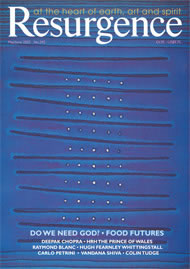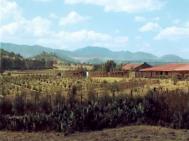IN THE WEST, we tend to see Africa as an impoverished society in need of our scientific knowledge and expertise. But before we rush to help, we need to consider the long-term impact of our interventions. In both medicine and agriculture, we are beginning to see that our industrial, chemical solutions often cause as many problems as they solve, and sometimes more. The Deshet Project in Ethiopia is an example of the way in which indigenous knowledge of healing and medicine may pave a way for the future.
Although 80–90% of Ethiopia’s population uses traditional medicine, research funding still goes towards finding top-down pharmaceutical solutions to medical problems. And in its search for new drug patents, medical research often uses a traditional healer’s pharmacopoeia, but will certainly dismiss the healer’s methods of diagnosis and treatment.
Hakim Abebech is very aware of these problems. She has been asked many times to share her knowledge with drugs companies, but remains sceptical. She has seen them patent local remedies, while the healers – and traditional knowledge itself – are not recognised. She has seen the dangers explicit in separating knowledge from its root.
Discouraged by this kind of science, Abebech set up her own centre to preserve traditional knowledge and to present traditional systems of healing in their entirety. Twenty kilometres south of Addis Ababa, Hakim Abebech and her husband leased a few acres of land. They reforested the hills and grow herbs using organic methods. The centre they created is called Deshet – after the father of the ancient healing tradition of Ethiopia. Deshet is a centre for growing, preserving and documenting medicinal plants. Each year, Hakim Abebech spends two or three months collecting plants for her medicines from all over the country. She has researched traditional ways of storing seed, and has created her own seed bank, using clay pots and various gums for sealing. Seed can be stored in this way for fifty years without losing its characteristics. This kind of knowledge – well understood by herbalists – is rarely considered by commercial growers.
The Deshet centre provides its visitors with a first-hand experience of traditional lifestyle – a place to experience healthy food, and to remember that our bodies are designed to live at a human rather than a machine-led pace. As a fifty-second-generation healer, trained from the age of five, Hakim Abebech holds the knowledge of her lineage, passed down over hundreds of years. She hopes that Deshet will be a centre of learning, where people will come to observe and study traditional methods of growing and using medicinal plants, as well as learning to live a life more in tune with nature.







